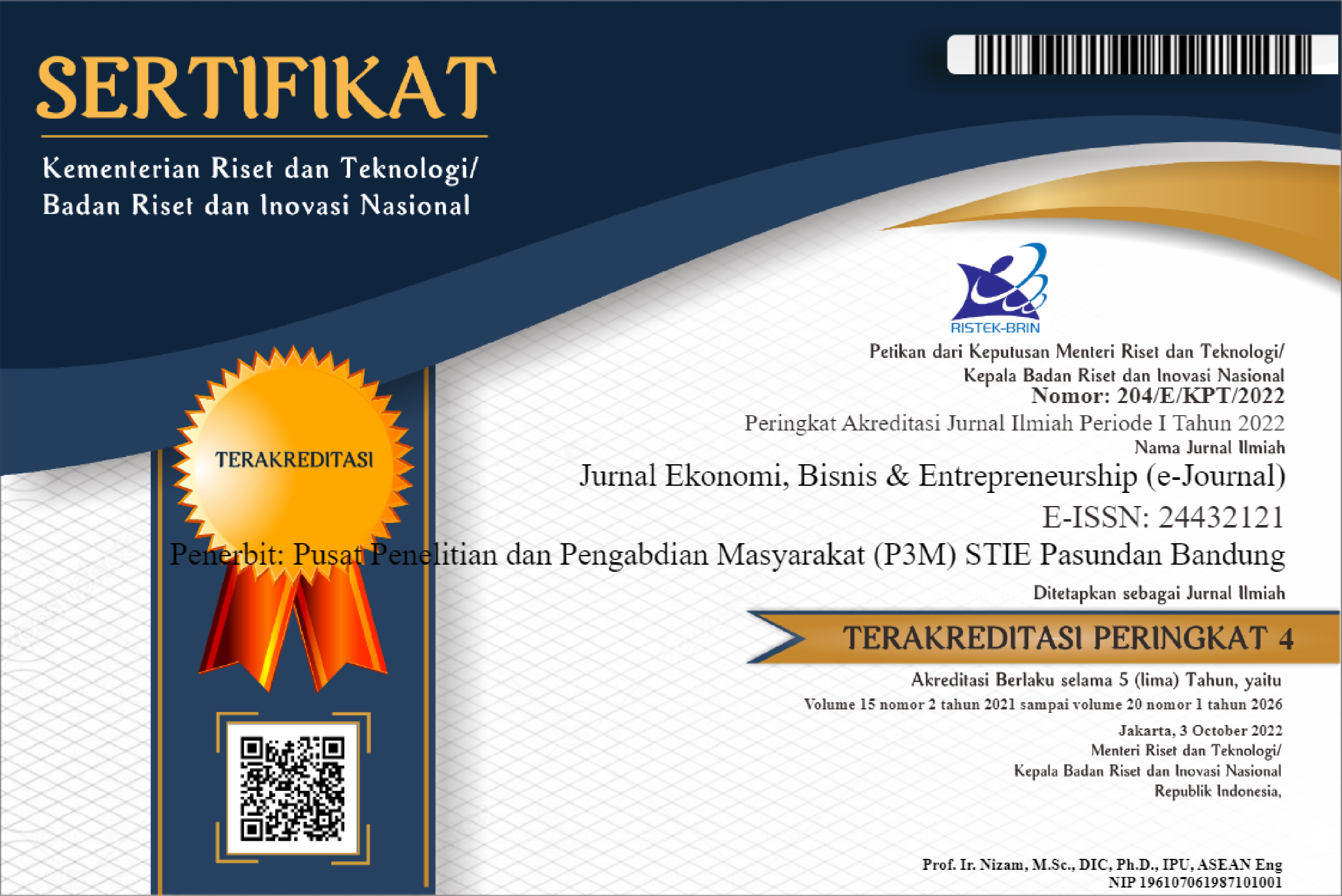The Effect of Extrinsic Motivation and Compensation on Employee Performance
Study on Employees at a Retail Company in the City of Bandung
DOI:
https://doi.org/10.55208/jebe.v16i2.302Keywords:
extrinsic motivation, compensation, employee performanceAbstract
This research aims to know the effect of extrinsic motivation and compensation on employee performance at a retail company in Bandung. This study also aims to analyze the most dominant factor between extrinsic motivation and compensation on employee performance. This research method uses descriptive and verification methods. Researchers obtained data and information that would support this research by taking the object of research as many as 40 employees using a questionnaire aimed at employees.
Based on the study's path analysis results, the extrinsic motivation variable has a direct effect of 24%, an indirect effect through a relationship with compensation of 19.5%, and a total effect of 43.5%. The compensation variable has a direct effect of 23.5% and an indirect effect through the extrinsic motivation of 19.5%, a total effect of 43.0%. The results of the correlation coefficient of determination expressed in percentages describe the magnitude of the contribution of all independent variables, namely extrinsic motivation and compensation, in determining the performance variable, which is 0.865 or 86.5%. In contrast, other factors that do not affect performance that is not examined are shown by the value of ? = 0.135 or 13, 5%. The conclusions and suggestions obtained are considered in connection with the study's results; namely, management should be able to maintain and increase extrinsic motivation and compensation to improve performance.
Downloads
Published
How to Cite
Issue
Section
License
Copyright (c) 2022 Pramagia Azhari, Farid Riadi

This work is licensed under a Creative Commons Attribution-NonCommercial-ShareAlike 4.0 International License.








